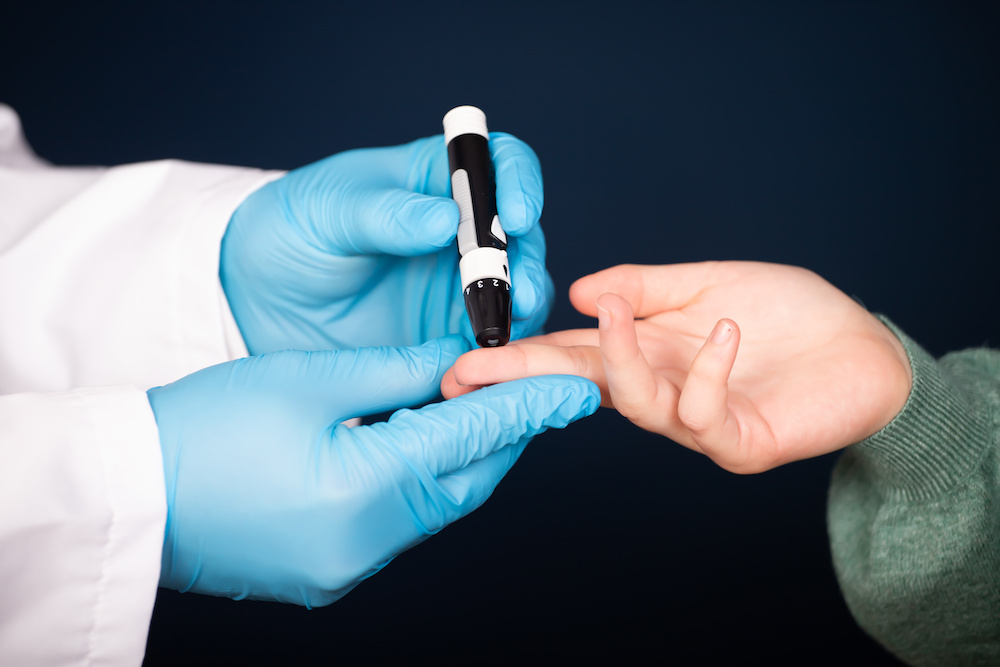Type 1 diabetes typically develops in children and teens but can sometimes develop in adulthood. It is a condition that stops or severely limits the pancreas’s ability to produce insulin. Without adequate insulin levels, your child’s body may destroy its fat and muscles, leading to significant weight loss.
In some cases, it could result in diabetic ketoacidosis, which occurs when there is too much acid in the blood, causing severe dehydration. There are many other signs and symptoms of type 1 diabetes that we will discuss later in this article.
There is no cure for type 1 diabetes. However, in most cases, the symptoms can be managed. That’s especially true if you take action as soon as symptoms arise. If you suspect your child has type 1 diabetes, it’s recommended that you schedule an appointment with an experienced pediatrician as quickly as possible.
Contact Newport Children’s Medical Group today for expert diagnosis and treatment for type 1 diabetes. Continue reading to learn how to spot type 1 diabetes in children and what to do about it.
What Are The Causes of Type 1 Diabetes?
There are no known causes of type 1 diabetes. However, according to the CDC, there is speculation that it’s caused by a mistaken autoimmune reaction resulting in the body fighting itself. In many cases, this can occur for long periods of time before symptoms are apparent.
Generally, factors that affect the likelihood of type 1 diabetes can include family medical history, genetics, race, and exposure to certain viruses.
Additionally, type 1 diabetes symptoms can be caused by specific environmental triggers. It’s essential to note that it is not the result of poor lifestyle choices or improper diet. Continue reading to learn about possible signs of type 1 diabetes and how to spot them.
How Do I Know If My Child Has Type 1 Diabetes?
It can take months or years for type 1 diabetes symptoms to surface. When they do develop, it’s usually fast. Typical symptoms associated with type 1 diabetes include but are not limited to:
- Abnormal thirst
- Uncommon urination patterns (sometimes resulting in bed wetting)
- Insatiable hunger
- Unexpected weight loss
- Fatigue or tiredness
- Changes in mood and behavior
- Breath with a sweet/fruity smell
It’s important to remember that a child may exhibit some or all of the symptoms mentioned above but not have type 1 diabetes. That’s why it’s essential to get a professional diagnosis from a pediatrician you trust.
How Does a Pediatrician Test For Type 1 Diabetes?
If you or your child’s pediatrician notice possible signs of type 1 diabetes, the only way to be sure is to take a blood sugar test for diabetes diagnosis. The most common type 1 diabetes blood tests include:
- Glycated hemoglobin (A1C) test
- Random blood sugar test
- Fasting blood sugar test
Depending on the outcome of the tests, your family pediatrician may recommend taking additional tests to learn more about your child’s diagnosis.
At What Age Can A Child Be Diagnosed With Type 1 Diabetes?
A child can be diagnosed with type 1 diabetes at any age. That includes infants, toddlers, pre-teens, and teenagers. However, most diagnoses occur after the age of five.
Since it can be difficult for a person who’s not a physician to spot the signs of type 1 diabetes, it’s recommended to take your child for regular medical check-ups. The faster your child receives a diagnosis, the sooner you and your pediatrician can develop a type 1 diabetes action plan.
How Serious is Type 1 Diabetes?
Type 1 diabetes is a serious condition that requires immediate medical intervention. Possible complications arising from type 1 diabetes include but are not limited to:
- Damaged kidneys
- Nerve damage
- Heart disease
- Blood vessel disease
- Osteoporosis
- Damaged eyesight
Additionally, children with type 1 diabetes are more susceptible to other types of auto-immune disorders. The good news is that there are proven methods to limit and potentially prevent most complications. The first step in developing an effective action plan is scheduling an appointment with a type 1 diabetes pediatrician as soon as possible.
Get Expert Diagnosis And Treatment Today
Type 1 diabetes is an unpreventable disease. However, it’s possible to uncover high-risk markers within children well before symptoms appear. If your child exhibits signs of type 1 diabetes, it’s essential to take immediate action.
Your child’s condition can be managed and their quality of life improved with consistent blood sugar monitoring, appropriate medications, and other effective interventions. Contact Newport Children’s Medical Group today to schedule an appointment with an experienced, compassionate, and trusted pediatrician for type 1 diabetes in California.

